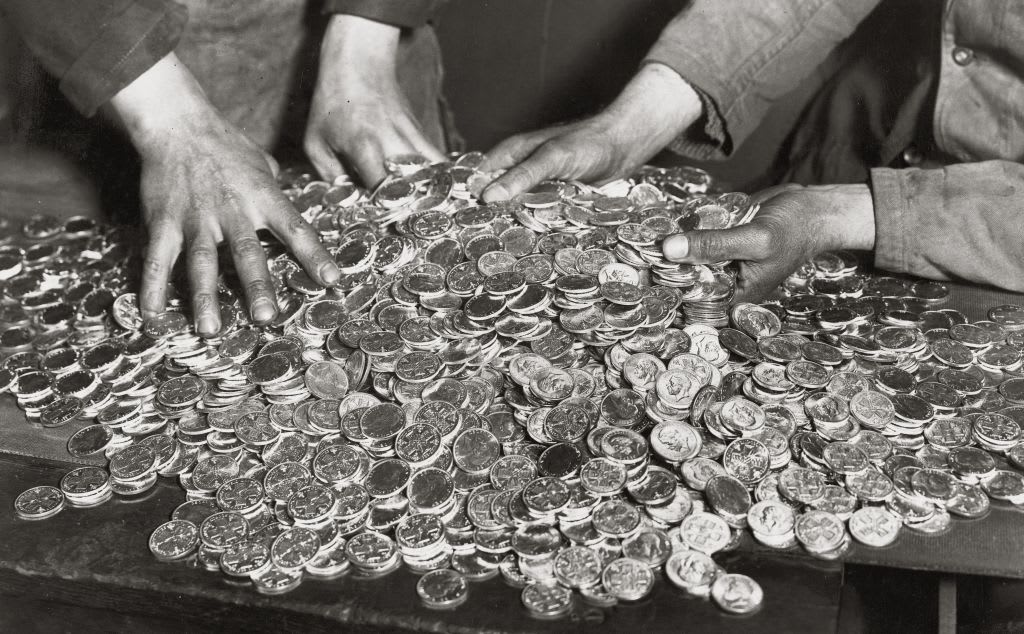What a rate pause means for gold prices
It's official: The Federal Reserve has paused interest rates for the first time in 15 months. This move will have an array of financial impacts, from credit card interest rates to savings account yields. But what will it mean for gold investing, which has been increasingly popular as interest rates rose?
When we spoke with experts in May, they largely predicted gold prices would hold (if not increase) over the remainder of the year. But what do the experts say in light of the Fed's latest move? Read on to find out — and to learn what this means for your investing decisions.
Learn more about gold investing today with this free information kit.
What a rate pause means for gold prices
Gold prices have been consistently high this year, reaching a near-record peak of $2,048 in April 2023. Since then, they've remained around the $2,000 mark. When it comes to where they'll head next, experts have different takes.
Looking at the factors that affect gold prices, some experts predict the Fed's rate pause will result in higher gold prices. Doug Carey, CFA, president and owner of WealthTrace, specifically points to the following:
- Inflation: Gold is widely seen as a good hedge against inflation. Carey points out that a rate pause "might signal concerns about economic growth or inflation. This could lead investors to purchase more gold as a hedge against potential inflationary pressures, pushing the gold price up."
- The strength of the dollar: Gold tends to have an inverse relationship with the dollar. When the dollar is weak — as it is during times of high inflation — gold prices tend to rise. While rates are currently paused between 5% and 5.25%, they're still well above the Fed's target of 2%, suggesting gold prices are likely to remain high for some time.
- Opportunity cost: "Higher interest rates increase the opportunity cost of holding non-yielding assets such as gold. If interest rates rise, investors may prefer to invest in interest-bearing assets such as bonds or savings accounts," Carey says. With a rate pause, however, "gold becomes more attractive, potentially boosting its price as demand increases."
Not all experts expect prices to go up, however.
"I do not foresee the price of gold (or demand thereof) being affected that much by the Fed's pausing on raising rates this time around," says Dana Menard, CFP, founder and lead financial planner at Twin Cities Wealth Strategies. "I think that most of the price movement has already been baked into the price of gold as the Fed has been steadily raising rates over the past year and inflation has tamped down a bit."
How the Fed's announcement affects gold prices largely depends on how investors interpret the pause.
"If investors interpret the pause as a sign of an impending economic slowdown, they might reduce their exposure to riskier assets like equities and shift towards safer investments, such as bonds or gold," says Carey.
However, if investors see the pause as a signal that the Fed isn't as concerned about inflation as it has been, gold demand may decrease as investors put more of their money back into the stock market.
In summary? We can make educated predictions about gold's future price movement, but as with any investment, there's no 100% guarantee.
Should you invest in gold now?
Hypothesizing about future trends is something investors love to do, but what does all this mean for the value of gold as an investment today?
Timing the market has never been a wise strategy when it comes to gold investing. Gold's real worth lies in its power as a long-term investment capable of riding out temporary market turbulence and delivering stable returns over time. As a result, the Fed's rate pause — and whatever it does to gold prices — isn't as important as considering gold's overall benefits as an investment.
When held over the long term, gold can help protect your portfolio from losses, hedge against inflation and provide liquidity when you need a cash injection. For these reasons, it can be a valuable part of your portfolio no matter what the latest financial headlines are.
"I think gold is worth investing in always as a part of a very well-diversified portfolio as I believe in the power of evidence-based investing," says Menard.
Is gold a smart addition for your portfolio? Find out by requesting a free investors kit here.
The bottom line
As with any investment, your decision to buy gold should be based on your own research and careful consideration, taking into account your budget, risk tolerance and long-term investing goals.
"Remembering why you're investing your money and what its purpose is provides a lot more clarity into the timeframe and method in which you go about investing those dollars," says Scott Sturgeon, CFP, founder of Oread Wealth Partners. "When you switch your mentality to that perspective, it becomes clear that dwelling in short-term speculation over events that are out of your control and may not even happen isn't productive."




